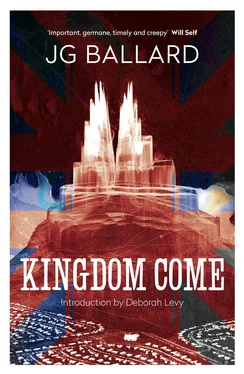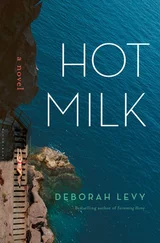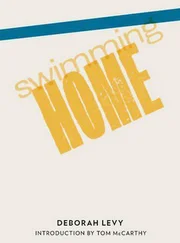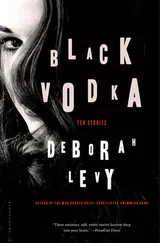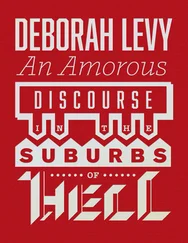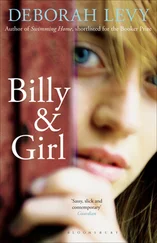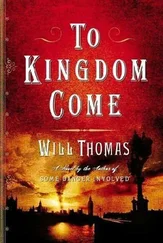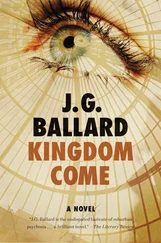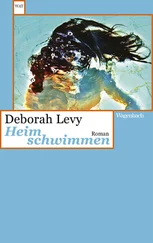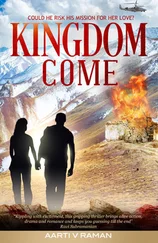Sipping my flavour-free lager – another agency triumph – I studied the map as the manager hovered around my table. But I was in no hurry to order, and not merely because I had a shrewd idea of the sort of food on offer. The one fixed point on the map was my father’s flat in Brooklands, only a few miles to the south of where I sat. I could almost believe that he was waiting behind his desk, ready to interview me for a new post, the job of being his son.
What would he see, in those make-or-break thirty seconds when the interviewee entered his room? Applicant: Richard Pearson, forty-two years old, unemployed account executive. Likeable, but can seem slightly shifty. One-time secret smoker and former junior Wimbledon player with right elbow spur. Failed husband completely outwitted by his former wife. Good-humoured and optimistic, but privately a little desperate. He thinks of himself as a kind of terrorist, but all he is good at is warming the slippers of late capitalism. Applying for the post of son and heir, though very hazy about duties and entitlements …
I was very hazy, and not only about my father.
A week before his death I drove a close friend to Gatwick airport, at the end of my happiest months in many years. A Canadian academic on a year’s sabbatical, she was flying back to her job in the modern history department at Vancouver University. I liked her confidence and humour, and her frank concern for me. ‘Come on, Dick! Jump! Bale out!’ She talked of my joining her, perhaps finding work in the media studies department. ‘It’s an academic dustbin, but you can rattle the lid.’ She knew I had been eased out of the agency – my last campaign had been an expensive fiasco – and urged me to look hard at myself, never an inviting proposition. I started to miss her keenly a month before she left, and was more than tempted to pull the ripcord and join her.
Then, at the Gatwick departure gate, she discovered my passport in her handbag, zipped away in a side pocket since our return from a Rome weekend. Baffled, she stared at the war-criminal photo. ‘Richard … ? Who? Dick, my God! That’s you!’ She shrieked loudly enough to alert a security guard. I took this as a powerful unconscious signal. Vancouver and an escape into academia would have to wait. If someone who liked me and shared my bed could forget my name at the first glimpse of a departure lounge I needed urgently to reinvent myself. Perhaps my father would help me.
I finished my lager, watched by the manager, who had come to the window and was staring uneasily at the sky above the multistorey garage. I was about to ask him about the St George’s badges worn by many of the passers-by, but he turned the ‘Closed’ sign to the street and retreated quickly to the rear of the restaurant. Sirens sounded, and groups of shoppers gazed up at the clouds of smoke floating across the precinct. Two police cars sped by, roof lights flashing.
Something had happened to disturb the deep consumerist peace. The manager disappeared into his kitchen, and a woman’s voice cried in alarm. Leaving enough cash to settle the bill, I folded the map, unlatched the door and let myself out of the restaurant. A fire engine bullied its way through the crowd, siren turning the air into a headache. I followed on foot, pushing past the pedestrians who stared at the darkening sky.
A few hundred yards from the town centre, near the road I had taken from the motorway, a car was burning on the perimeter of a modest council estate. Residents stood in their front gardens, arms folded as they watched the flames rise from a battered Volvo. A policeman discharged his fire extinguisher into the passenger cabin, while a fellow officer held back the crowd. They were staring at the shabby house of one of their neighbours, where a policewoman stood by the front door, gazing in a resigned way at the untended garden. Splashes of white paint traced a gaudy slogan over the masonry, and I assumed that an unpopular arrival had sullied the atmosphere of the estate, perhaps a released murderer or a paedophile exposed by the local vigilantes who had torched the car.
I eased my way through the onlookers, many still carrying their shopping bags, viewing the scene like an unexpected publicity display in a dull department store. Their expressions were hostile but wary, and they ignored the fire engine that pulled up behind them. They took their lead from three men in St George’s shirts who stood beside the gate, employees of a local hardware chain whose logo was stamped on their breast pockets. Their muscular, slightly paranoid presence reminded me of stewards at a football match, but there was no stadium anywhere nearby, and the only sport was taking place outside this seedy semi.
‘What’s going on? Is someone hiding inside … ?’ I spoke to a stocky woman muttering to herself as her wide-eyed daughter stared up at me. But my voice was drowned in the crowd’s roar. The villa’s door had opened, and a bearded man in turban and black robe stood on the step, beckoning to the anxious faces in the hall behind him. Above the door was a small ceramic plaque bearing an Arabic inscription, and I realized that this modest suburban house was a mosque. I was present at an outbreak of religious cleansing.
Instructed by the policewoman, the imam urged his followers into the garden. Three Asian youths in jeans and white shirts emerged into the light, followed by an elderly Pakistani man and a woman in a jellaba carrying a suitcase. Heads lowered, they moved through the now silent crowd, guarded by the firemen and police. As she passed me, the woman stumbled on the kerb, and I caught the stale, sweat-stained odour from her robe, the reek of fear.
I raised my hands to help her, but a strong shoulder knocked me off balance. Two of the hardware store assistants in St George’s shirts blocked my path, narrowed eyes staring over my head. I tripped onto one knee beside the Volvo, my hands pressed against a charred rag of plastic seating. Legs stepped over me, shopping bags swinging past my face. Without comment, the policewoman lifted me onto my feet, then walked me through the crowd to her car, where the imam sat alone in the back seat. His small congregation had vanished into the smoky air.
‘You’re with him?’ The policewoman opened the passenger door for me. ‘You can sit up front … ?’
‘No, no. I’m passing through. I’m a tourist.’
‘A tourist? We don’t get many of those.’ She slammed the door and turned away from me. ‘Next time try Brooklands Metro-Centre. Or Heathrow … everybody’s welcome there.’
I walked back to the car park, no longer surprised that the policewoman thought of a shopping mall and an airport as tourist attractions. I had witnessed a very suburban form of race riot, which had barely disturbed the peaceful commerce of the town. The shoppers grazed contentedly, like docile cattle. No voice had been raised, no stone thrown, and no violence displayed, except to the old Volvo and myself.
I drove out of the car park, following a sign that pointed to Shepperton and Weybridge, glad to be leaving this strange little town. I accepted that a new kind of hate had emerged, silent and disciplined, a racism tempered by loyalty cards and PIN numbers. Shopping was now the model for all human behaviour, drained of emotion and anger. The decision by the estate-dwellers to reject the imam was an exercise of consumer choice.
Everywhere St George’s flags were flying, from suburban gardens and filling stations and branch post offices, as this nameless town celebrated its latest victory.
2
JOURNEYS SELDOM END when I think they do. Too often a piece of forgotten baggage goes on ahead and lies in wait for me when I least expect it, circling an empty carousel like evidence being assembled before a trial.
Читать дальше
